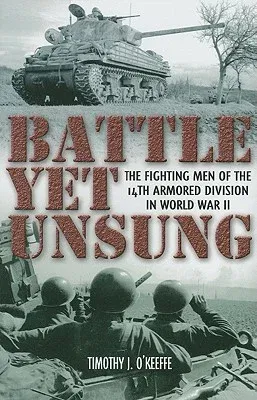While headline writers in the ETO were naturally focused on events in
Normandy and the Bulge in the north, equally ferocious combats were
taking place in southern France and Germany during 1944-45, which are
now finally getting their due. The US 14th Armored Division--a late
arrival to the theater--was thrust into intense combat almost the minute
it arrived in Europe, as the Germans remained determined to defend their
southern flank.
Like other US formations, the 14th AD, after advancing through France
against intermittent opposition, was hammered to a standstill at the
Westwall in the fall of 1944. Nevertheless, it had gained experience,
and when the Germans sought to turn the tide, with Operation Northwind,
they found a hardened formation against them. This book explores in
detail what happened in the month of January 1945 in the snow-covered
Vosges Mountains, when the Wehrmacht's attempt to destroy the Sixth Army
Group failed. Northwind began in the mountains but was extended onto the
plains of Alsace very near the Rhine River. A strategic withdrawal after
a hellish ten days of fiery combat allowed the Allies to hold the line
until a spring offensive. The dreadful cold and the conflagration of
battle took a toll on both sides, but by now the 14th and the other
American divisions felt the heat of battle in their hearts and knew what
had to be done to defeat a wily enemy.
But the Siegfried Line still loomed in front to American forces, and in
the sector of the 14th, the divisions literally exploded their way
through it in March at Steinfeld, and began to propel the Wehrmacht into
a retreat from which it could never recover. Armored columns kept
punching their way through roadblock after roadblock in town after town
with powerful artillery and air concentrations that never gave the
German soldiers a chance to respond. As a result of the rapid advance of
Seventh Army and the 14th, German POW camps like the ones at Hammelburg
and Moosburg were liberated of over 100,000 prisoners, an achievement
which gave the division the nom de guerre "The Liberators."
Timothy O'Keeffe, a Professor Emeritus from Southern Connecticut State
College, had a brother-in-law who lost a leg while serving with the
"Liberators," and
thus has devoted years of effort to unveiling the crucial, yet
heretofore unwritten, role that they played in the ultimate Allied
victory.

